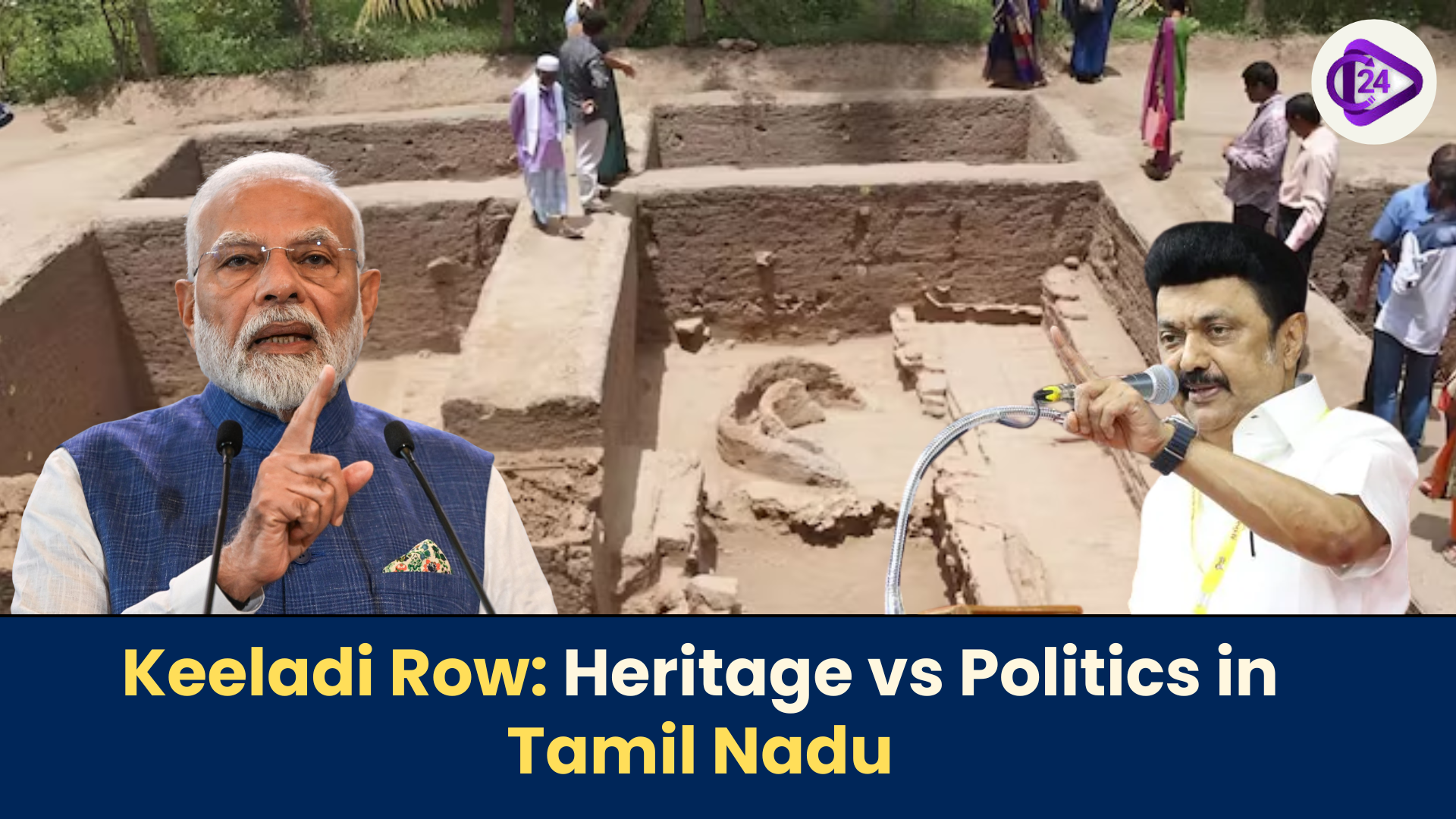
The Keeladi controversy deepened when an archaeologist K. Amarnath Ramakrishna was transferred and requested to amend his report by the Archaeological Survey of India (ASI). This dispute created political turmoil in Tamil Nadu where local parties have accused the Centre of violating Tamil traditions. The controversy has led to a greater discussion concerning the validity of science in the findings and the place of politics in history.
Context
-
The Keeladi excavation process during which evidence of ancient urban civilization had been unearthed has become a battleground on the political differences between Tamil Nadu and the Centre.
-
That ASI should revise the report has resulted in an allegation of stopping the Tamil legacy and the issue has been raised further.
Details
Background of excavation:
-
Keeladi excavation, started by K. Amarnath Ramakrishna, turned up more than 7,500 artifacts, dating at least to the 2nd century BCE, the period of Sangam.
ASI’s Demand
-
The ASI criticized the ASI questioning the dating and depth of some discoveries and requested that the report be revised after Ramakrishna submitted his 982-page report on the findings.
-
But Ramakrishna did not obey and justified his discovery as a scientific one.
Political Reactions
-
The political parties in Tamil Nadu, particularly DMK chided the Centre for subjugating Tamil culture.
-
The AIADMK remained silent but then voiced its concern of lack of corroboration.
Historical Significance
-
The Keeladi discovery featured that the civilization lacked religion as there is no trace of any religious icon in the area.
-
This has been used as the reason for an advanced Tamil civilization, and led to pride in Tamil heritage.
Scientific Dispute
-
ASI took objections over the early date of findings arguing that there still was a need to conduct more scientific tests to substantiate the finding.
-
But Ramakrishna postulated that the results conveyed by a strict sense of archaeology with Accelerator Mass Spectrometry.
Conclusion
The Keeladi debate points to the issue of science and politics in the wide sense of historical identity. Whereas the scientific community is holding the grounds on the legitimacy of the results, there is still the political context to the debate as Tamil Nadu considers it as their right to protect and continue their archaic culture. The scandal highlights the problem of the reconciliation of historical studies and political and cultural discourses.



 First-Ever Subsea Tunnel in Kerala: Reduce Travel Costs & Ease Traffic
First-Ever Subsea Tunnel in Kerala: Reduce Travel Costs & Ease Traffic India’s Demographic Dividend as a Time Bomb: A Call for Action
India’s Demographic Dividend as a Time Bomb: A Call for Action Free Bus Schemes Help, But Rural India Pays More to Travel
Free Bus Schemes Help, But Rural India Pays More to Travel Uttarakhand: A Persistent Hotspot for Helicopter Accidents
Uttarakhand: A Persistent Hotspot for Helicopter Accidents Empowering Women in Agriculture for Food Security
Empowering Women in Agriculture for Food Security Is India the World’s Fourth Largest Economy?
Is India the World’s Fourth Largest Economy? Rewriting the Script of Early Childhood Education: A Key to India’s Future Workforce
Rewriting the Script of Early Childhood Education: A Key to India’s Future Workforce Menstrual Hygiene Issues and Period Stigma: A Barrier to Girls’ Education in India
Menstrual Hygiene Issues and Period Stigma: A Barrier to Girls’ Education in India NEP 2020: Paving the Way for Practical, Pragmatic, and Innovative Education to Enhance Employability
NEP 2020: Paving the Way for Practical, Pragmatic, and Innovative Education to Enhance Employability






